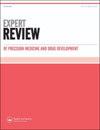类风湿关节炎基因治疗研究进展
IF 1.2
Q4 PHARMACOLOGY & PHARMACY
Expert Review of Precision Medicine and Drug Development
Pub Date : 2020-03-10
DOI:10.1080/23808993.2020.1736942
引用次数: 3
摘要
类风湿性关节炎(RA)是一种关节自身免疫性疾病,影响全球0.24%的人口。许多患者对目前的治疗只有部分反应或根本没有反应,而与这些治疗相关的免疫抑制的全身并发症是不可接受的。类风湿性关节炎的遗传疗法有可能通过靶向递送到疾病部位、提高疗效和避免不良反应来改善治疗。必须仔细选择给药途径、给药载体、核酸类型和靶基因,以开发有效的RA基因治疗。从动物模型和临床试验中研究的类风湿性关节炎基因治疗的例子中,本文讨论了如何使用这些策略将类风湿性关节炎基因治疗转化为临床。专家意见现有的类风湿性关节炎治疗缺乏对关节的特异性。遗传传递系统可以包括靶向特性,如疾病反应性启动子或细胞靶向部分,以克服这一点。特别是非病毒载体,可以很容易地进行工程改造,使其具有这些特性,并且与病毒载体不同,它们表现出低免疫原性。与目前的药物相反,基因疗法可以在关节内进行,提供持续的治疗水平。靶向载体也可以实现这一点,但只需一次全身注射,同时将治疗药物输送到所有受影响的关节。本文章由计算机程序翻译,如有差异,请以英文原文为准。
Toward gene therapy in rheumatoid arthritis
ABSTRACT Introduction Rheumatoid arthritis (RA) is an autoimmune disease of the joint, affecting 0.24% of the global population. Many patients only respond partially or not at all to current therapies while the systemic complications of immunosuppression associated with these treatments are unacceptable. Genetic therapies for RA have the potential to improve treatments by targeting delivery to the disease site, enhancing efficacy, and avoiding adverse effects. Areas covered The route of administration, delivery vector, nucleic acid type, and target gene must be carefully selected to develop an effective RA gene therapy. Drawing from examples of RA gene therapies investigated in animal models and clinical trials, this review discusses how these strategies may be used to translate RA gene therapy into the clinic. Expert opinion Existing RA treatments lack specificity to the joint. Genetic delivery systems can include targeting properties, such as disease-responsive promoters or cell-targeting moieties, to overcome this. Non-viral vectors, in particular, can be engineered easily to possess these properties and, unlike viral vectors, display low immunogenicity. Contrary to current drugs, gene therapy can be delivered intra-articularly, providing sustained levels of the therapeutic. Targeted vectors may also achieve this, but with a single systemic injection, simultaneously delivering the therapeutic to all affected joints.
求助全文
通过发布文献求助,成功后即可免费获取论文全文。
去求助
来源期刊

Expert Review of Precision Medicine and Drug Development
PHARMACOLOGY & PHARMACY-
CiteScore
2.30
自引率
0.00%
发文量
9
期刊介绍:
Expert Review of Precision Medicine and Drug Development publishes primarily review articles covering the development and clinical application of medicine to be used in a personalized therapy setting; in addition, the journal also publishes original research and commentary-style articles. In an era where medicine is recognizing that a one-size-fits-all approach is not always appropriate, it has become necessary to identify patients responsive to treatments and treat patient populations using a tailored approach. Areas covered include: Development and application of drugs targeted to specific genotypes and populations, as well as advanced diagnostic technologies and significant biomarkers that aid in this. Clinical trials and case studies within personalized therapy and drug development. Screening, prediction and prevention of disease, prediction of adverse events, treatment monitoring, effects of metabolomics and microbiomics on treatment. Secondary population research, genome-wide association studies, disease–gene association studies, personal genome technologies. Ethical and cost–benefit issues, the impact to healthcare and business infrastructure, and regulatory issues.
 求助内容:
求助内容: 应助结果提醒方式:
应助结果提醒方式:


